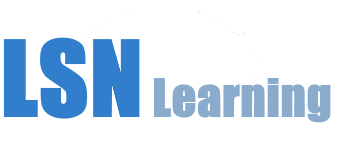Have you thought about becoming a First-Aider?
Benefits of learning first-aid.
Benefits of learning first-aid.
If you work in the scaffolding industry, you will be aware that accidents can happen. Even if you take all of the right steps to mitigate risks, things can still go wrong sometimes, and people could get hurt. Knowing first aid can help to reduce the lasting impact of an accident if it is administered correctly and in a timely manner. What is more, the skills that you learn on a first aid course are completely transferrable. That means that if a friend, family member, neighbour or complete stranger is in need of assistance, you may be able to step in there and help them.
First aid training is available from a number of different providers, including the British Red Cross and St John’s Ambulance.
If you want to become a First Aider for the workplace, then you may need to attend a special course, as the skills that you will be taught will differ slightly from those that the general public are taught. This is because people who work in the scaffolding industry are likely to encounter different dangers, and therefore different injuries. If you are unsure about what course to sign up for then speak to a few different training providers to see what type of course they would recommend for your needs. On all of these courses, you will be expected to partake in practical and theoretical learning segments.
Basic first aid in the workplace courses will deal with a wide range of different medical issues, such as breathing difficulties, wound management, burn treatments, broken bones, and heart problems. You will also be taught how to make sure that you are not putting yourself in danger whilst treating the injured party. You may be expected to practice your skills on your classmates, so that you can demonstrate that you can do what is required of you. In order to be awarded the accreditation, you might need to pass a final assessment at the end of the course.
Accredited courses almost always have a cost attached to them, so you should be prepared to pay for training if you want to learn proper first aid.
Three day courses from the British Red Cross cost around £325 including VAT. These courses are specialised for people who want to know first aid for the workplace. If you are employed by another business, they may be willing to contribute towards the cost of your course, or even pay for it in its entirety.
All sites should have at least one accredited first aider, so they may actually need to send people on a training course like this so that they always have a First Aider present. If you are in charge of your own scaffolding firm, then you may be able to claim back the VAT as a legitimate business expense when you are doing your tax returns.
Once you have gained accreditation you will be more competent in any situation which requires first aid. Anyone who has completed a first aid course should attend regular refresher sessions to ensure that their knowledge is sill up-to-date. If you do not attend refresher courses on the schedule that you have been advised of, then your accreditation may become lapsed. If this happens, you will no longer be able to call yourself a first aider.
Some employers are prepared to pay staff members more if they can prove that they are a trained first aider, and that they are prepared to be called upon if anyone needs first aid. Therefore, if your certification lapses, you are likely to lose any pay bonuses which are associated with it.
LSN Learning,
Bootle,
Merseyside.
e-mail: lee@lsnlearning.org.uk
